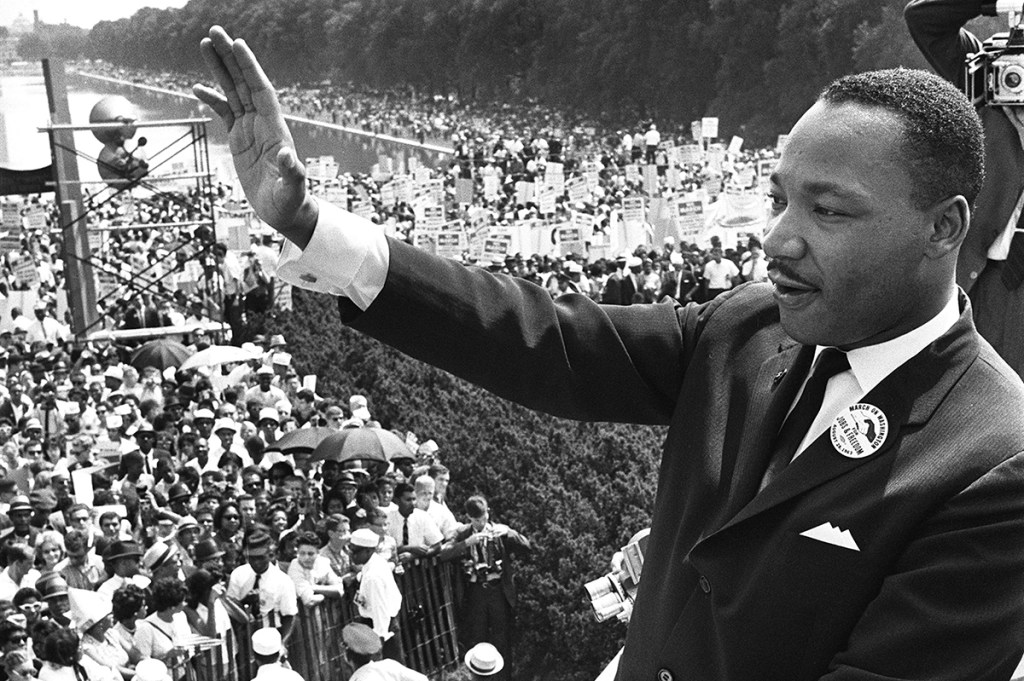After the horrible death of George Floyd in Minneapolis, I started to grow increasingly uncomfortable by what I saw. I saw the legitimate grievances of African Americans who for too long have failed to see their lives improve. I saw virtue-signaling whites lecture the rest of us to do something. My heart grew heavy. I was told again and again that I had ‘white privilege’; that America suffered from ‘institutional racism’; that the original sin of slavery made the country I love so deeply flawed.
I reached my boiling point as I drove my kids to meet up with friends where I shared my discomfort with the narrative being told about America. In the car, we talked about what’s been happening. I realized how social media already had ‘educated’ my children with misinformation, lies and false narratives. It was then I realized that if I didn’t defend America, my kids would be taught the wrong lessons about America. They would walk away from these events believing the progressive left and Black Lives Matter’s warped versions of American history.
I decided then and there I would not be silenced. I’m proud of America and I don’t think that is anything to be ashamed of.
I don’t claim to be a scholar, but I am passionate about America and its history. Unlike many of those who deride America, I’ve actually read every word of the Declaration of Independence, the US Constitution, The Federalist Papers and the Anti-Federalist Papers. I’ve read many books on the Revolutionary War, the Mexican-American War, the Civil War, World War One, World War Two, the Korean War, the Vietnam War, the Progressive Era, the Great Depression, the Supreme Court, the Civil Rights Era and virtually every period in our nation’s history.
Should the Founding Fathers have ended slavery from the beginning? Of course, and many of them knew it. Eighty years later, America fought a bloody and savage war to end slavery and free America’s blacks. When Reconstruction of the American South failed after Ulysses S. Grant left the presidency, America again failed to meet its obligations to African Americans thereby condemning the former slaves and generations of their descendants to lives filled with discrimination, poverty, and terror, especially in the Democrat-led American South.
It wasn’t until 100 years later that brave men and women like Martin Luther King and Rosa Parks pushed America to adhere to its founding promise that all men are created equal. With the passage of the Civil Rights Act of 1964, the legal enforcement tied thereto, and various Supreme Court decisions, African Americans finally possessed the same legal standing and the ability to enforce that standing as white Americans. Legal equality, however, would not undue the damage done to African American communities from slavery and second-class citizenship.
It is easy to amend laws with a few words.Changing lives after generations of poverty and dysfunction wrought by slavery and Jim Crow is the greatest challenge the country has ever faced.
After the Civil Rights Act, trillions of dollars were spent over the next 50 years to improve African American lives and communities, but too few lives and communities were made better. To truly fix the issues faced by African Americans (and, frankly, poor whites, Hispanics, and other races), it is vital to understand what the problem is. If you diagnose the problem incorrectly, your solutions are likely to fail. The rush to ascribe the plight of African Americans to white privilege, institutional racism, racists cops, or a flawed America goes against overwhelming data that shows that my gain isn’t someone else’s loss and the vast majority of cops aren’t racists.
The fact is if African American kids attend schools where they can learn and, like any teen rich or poor of any race, they avoid the pitfalls of drugs, alcohol, crime, and teen pregnancy, American society goes to great lengths to ensure that they succeed by admitting them into colleges and graduate schools and providing them with grants and scholarships to cover the costs. Corporate America then aggressively competes to hire those newly minted graduates. I’m not saying those graduates haven’t faced racism. There will always be idiots among us.
[special_offer]
But I can tell you many people like me grew up in poor-to-middle class families who had to work our tails off to get where we got. Most of us lacked connected parents or pampered lives. If there is white privilege, millions of whites don’t experience it.
The problem, of course, is that too few African Americans have the opportunity to be upwardly mobile and too many African American kids (and poor kids generally) are trapped in poorly performing schools and live in conditions in which drugs, alcohol, crime and teen pregnancy are all too common. If we want better outcomes, we need to fix the schools and the conditions that trap African Americans in the vicious cycle stretching back to the end of Reconstruction.
If we allow ourselves to be silenced and don’t defend the goodness that is America, we will not only fail our own children, but will also once again fail our fellow Americans who need our help. We must use our voices for the right kind of change.


















